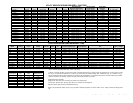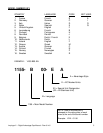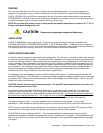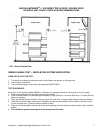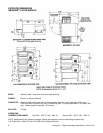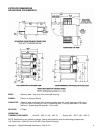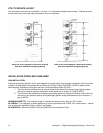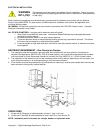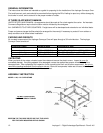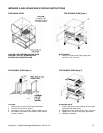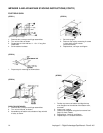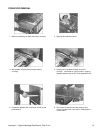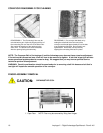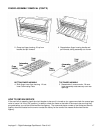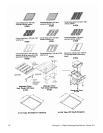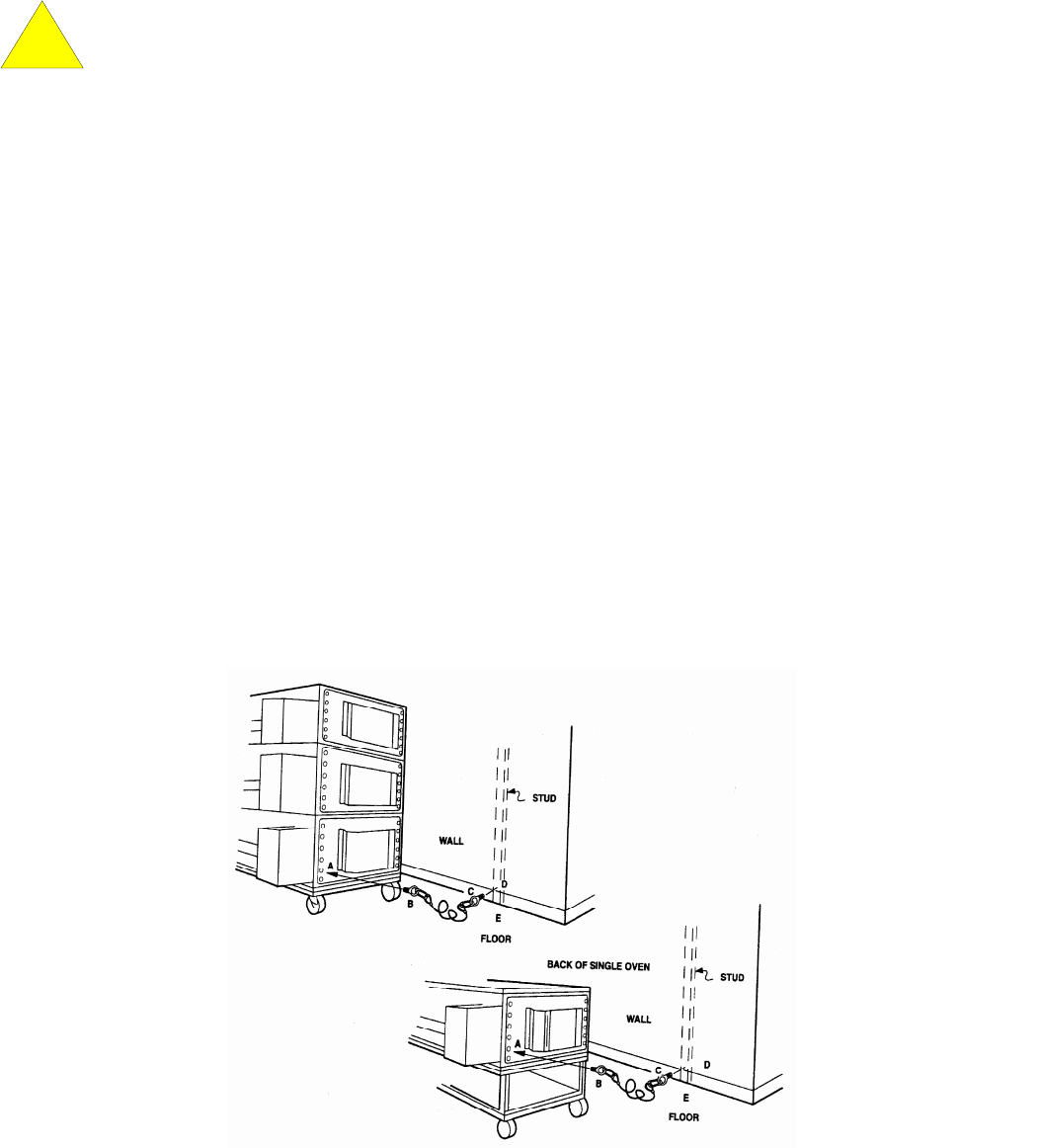
Impinger II – Digital Advantage Ops Manual –Dom & Int’l
11
ELECTRICAL INSTALLATION
When installed, the appliance must be electrically grounded and its installation must comply with the National
Electric Code, ANSI-NFPA 70, latest version, the Manufacturers’ Installation Instructions, and applicable local
municipal building codes.
IN CANADA: All electrical connections are to be made in accordance with CSA C22.2 latest version - Canadian
Electrical Code and/or Local Codes.
ALL OTHER COUNTRIES: Local gas and/or electrical codes will prevail.
1. Strain Relief is provided with each oven. International Dealer/Distributors provide applicable power
cord/plug for each customer.
2. All pole disconnection switch 3 mm open contact distance.
3. To prevent electrical shock an equal potential bonding ground lug is provided in the back. This allows
the oven to be connected to an external bonding system.
4. If used as double or triple stack and each oven has its own disconnection switch, all switches should be
close together.
RESTRAINT REQUIREMENT – Gas Oven(s) on Casters
1. The installation shall be made with a gas connector that complies with the local codes for Connectors for
Movable Gas Appliances, ANSI Z21.69 • CSA 6.16 latest version, and a quick-disconnect device that complies
with local codes for Quick-Disconnect Devices for Use with Gas Fuel, ANSI Z21.41 • CSA 6.9 latest version.
2. The installation of the restraint must limit the movement of the oven(s) without depending on the connector, the
quick disconnect device or its associated piping to limit the oven movement.
3. If the restraint must be disconnected during maintenance or cleaning, it must be reconnected after the oven has
been returned to its originally installed position.
OPERATIONS
1. Screw end B (lifting eye) of cable assembly to hole A. Use ¼ inch eye.
2. Screw end C (eye bolt) of cable assembly to stud in wall (D) or floor anchor (E).
NOTE: Installation point is the same for a single, double, or triple-stack oven.
WARNING
INT’L (CE):
!
This appliance must be properly grounded at time of installation. Failure to ensure
that this equipment is properly grounded can result in electrocution, dismemberment
or fatal injury.




